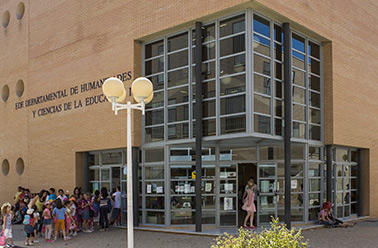Presentation
{{pre.error[0].message}}
Important:
- Document to help you register.
ATTENTION: The Carolina Foundation, in collaboration with the University of Almeria, announces for the academic year 2023/24 two scholarships for the realization of the Master's in Migration, Mediation and Vulnerable Groups in the area of Social and Legal Sciences, within the Training Program (postgraduate scholarships).
For more information, visit the Carolina Foundation website.
The social, educational, socio-economic and socio-cultural issues addressed by this Master's degree relate, in essence, to social vulnerability, processes of acculturation, discrimination, exclusion, social integration, demographic processes, and economic and social development (local and international), with a special emphasis on migration and diversity. These are social problems that affect society as a whole, and which have a great impact on people's quality of life and social cohesion.
On the other hand, they are highly dynamic subjects that continually pose new challenges requiring constant skill upgrading as well as a greater qualification and specialization to address them. In particular, migration (and its consequences) is one of the major global challenges of recent years, but the associated problems have led to continuous new developments.

Suggested profile for newly enrolled students
Those most interested in this master's degree will be Graduates in Social Sciences who wish to deepen their understanding of the fields covered: Migration, intercultural mediation and social intervention. Both those wishing to start research training and access a doctoral programme, and those interested in specialising their professional profile in the subjects covered.
Therefore, the applicant's profile will be that of a student with the basic scientific knowledge necessary to understand, interpret, analyse and explain his or her own field of study, with self-learning skills and those competencies each graduate is expected to have: the ability to understand scientific texts in English. If the university degree granting access to the master’s degree has been obtained in an educational system whose official language is not Spanish, a knowledge of the Spanish language at level B1 must be accredited, according to the Common European Framework of Reference for languages, before the date set for each Admission Phase. Those who can prove Spanish nationality or a Spanish-speaking country will be exempt from this requirement.
Students should also be motivated with attitudes and values that favour ethical commitment, given the issues to be addressed.
The proposed Master's Degree is multidisciplinary in nature and is therefore open to a wide variety of disciplines related to the Human and Social Sciences. Its design and objectives allow direct access for students trained in the following fields:
- 1. Priority given to: Graduates in Sociology, Social and Cultural Anthropology, Social Work, Social Education, History, Primary Education, Geography and History, Humanities, Psychology, Political Science; graduates in Geography, Law, Economics, Labour Sciences, and Communication.
- 2. In addition, access may be granted to students with equivalent or related degrees, as well as foreign equivalent or related degrees. Equivalent or related degrees are those which, regardless of their denomination or origin, in the opinion of the Academic Commission are equivalent to the degrees mentioned in the previous section, in terms of their academic level, contents and competencies, and comply with the legal access conditions that means the students who holds them can take part and benefit from the master's programme.
General data
Branch of knowledge:
{{pre.presentacion[0].nom_rama}}
Duration of the program:
{{pre.presentacion[0].n_creditos}} Credits / {{pre.presentacion[0].n_duracion}} years
Type of education
{{pre.otros_datos[0].tip_ensenanza}}
Language(s) used
Field of study:
{{pre.presentacion[0].nomambito}}
ISCED:
{{pre.presentacion[0].c_campos_estudio}}
{{pre.presentacion[0].c_campo_estudio_2}}
Coordination
Telephone: {{coo.coordinador[0].tlfcoo | trim}}
E-mail: {{coo.coordinador[0].emailcoo}}
E-mail: {{c.cen_email}}









